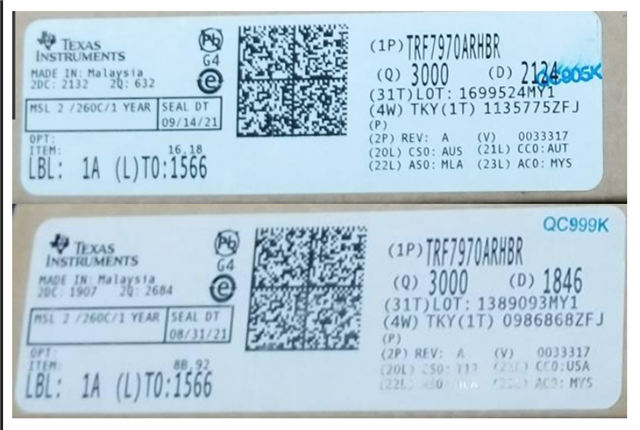Hi
We are using TRF7970A +MSP430F2370IRHAR as RFID module to polling read iso14443a uid.
When enviorment is heating RFID module in 70 degree tempture over 30 minutes, the RFID modules will be dead without response and cant read card.
We did some testing:
- When issue happened,TRF7970A pin 30 OSC_OUT dead clock 。
- Use external TXCO, issue is still there.。
- Cant fix issue after we add capacitor in power source.。
- Cant fix issue if we use external power source。
- After we A-B-A swap TRF7970A, the issue is going with fail IC
- TRF7970A RF rematching – Cant fix issue
- Just test MSP430 GPIO Hi/Lo,its working under high temp. But MSP430 + TRF7970 to read card fail. (Heating around 30 minutes).
Any idea how to fix it ??



